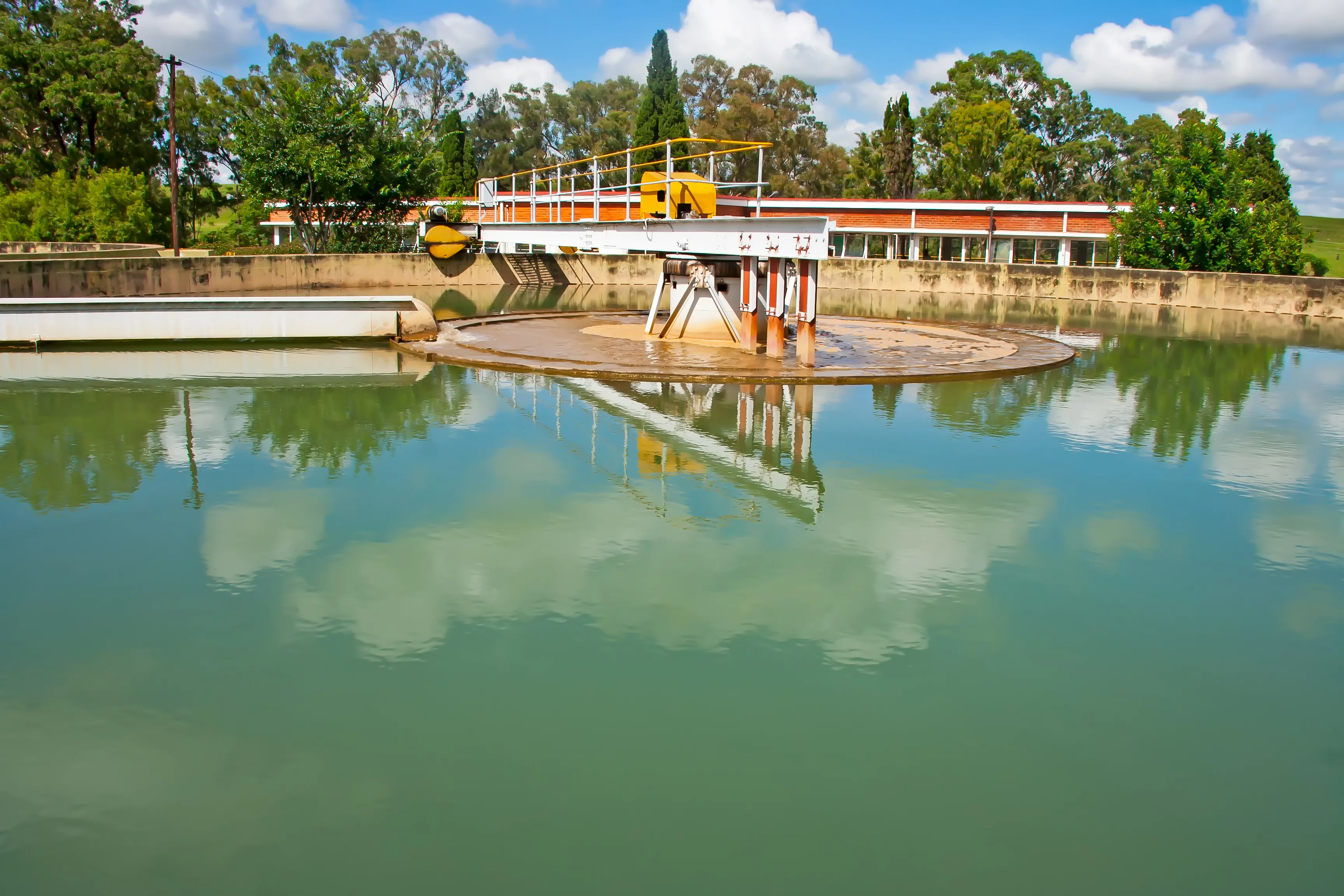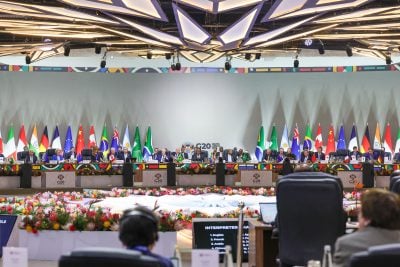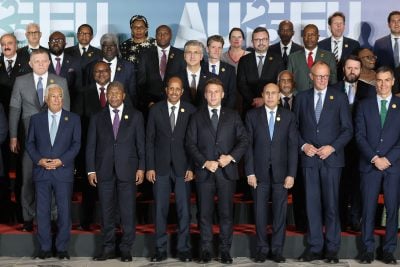Water is a huge problem for most African countries. Outdated and overstretched infrastructure, often managed by floundering public companies, has led to costly and unreliable water access in many cities across the continent.
According to the World Bank, one in three people face water scarcity in Africa and “bold action” must be taken to address the water crisis. Along with addressing water shortages in drought and climate disaster areas, this also includes rolling out a higher standard of water access in cities.
Little engagement
But the private sector has historically had very little engagement with water across the continent. African governments have typically taken full control of the sector, managing the resource as a public good.
Rami Ghandour, managing director of Metito, a UAE-based water company with operations in Africa, argues that public utilities have largely had an overall negative effect on the sector. He says that this is holding back crucial investment in the industry.
“Water authorities in many of the countries across the continent are losing a significant amount of money. As a result, they are not able to implement projects on a sustainable footing. But people still need water, so what you get is people using tank solutions which are often 20 to 30 times the cost of properly studied and implemented municipal solutions.
“I think there is the false impression that heavily-subsidised rates benefit the people when in reality they stop viable projects from happening and make citizens find alternative solutions.”
Another big issue is what Ghandour calls “non-revenue water” – water that is illegally siphoned off from the pipes or lost due to leakages.
In extreme cases, up to 90% of the water supply can be lost in some African metropolises, he says. This makes it much harder for the private sector to turn a profit and creates a huge barrier to investment. According to data collected by the World Bank and the Public-Private Infrastructure Advisory Facility (PPIAF) there were only 51 public private partnerships (PPPs) in the water and sewage sector between 1992 and 2012 in Africa.
Opening the floodgates
Despite the challenges, Ghandour says that there is significant potential for the private sector, particularly in PPPs, pointing to Rwanda’s Kigali Bulk Water Supply PPP.
In 2010, the rapidly growing population in Kigali was putting extreme pressure on its water infrastructure. The government set a bold target of reaching 100% water coverage by 2018 and reached out to the International Finance Corporation (IFC) to help set up a PPP.
In 2015, Metito won a 27-year concession with the government to develop, operate and maintain a water treatment plant and three reservoirs that could supply 40m litres of clean water each day to 500,000 people. The sole off-taker for the project was the national water utility, the Water and Sanitation Corporation.
The $60.8m project was financed primarily by the Emerging Africa Infrastructure Fund (EAIF), a company managed by the Private Infrastructure Development Group (PIDG), a finance organisation funded by the governments of the UK, the Netherlands, Switzerland, Australia, Sweden and Germany and the IFC. The EAIF provided $20.6m in junior and senior debt.
“It’s a project that started operations just under two years ago and it’s been operating very smoothly ever since,” says Ghandour. “It’s a model project for Africa, in terms of the business model and getting the private sector involved in the water sector. Most of the projects that come to market are financed with public money.”
Ghandour says the project’s success should open the floodgates for more PPPs in Africa. The bulk of Metito’s projects are in North Africa, primarily Egypt, but there has been more focus on PPPs in sub-Saharan Africa since the Kigali project, he says.
In 2021, the government of Botswana reached out to the IFC to create a Rwanda-style PPP turning wastewater into potable water in Gaborone. The $100m Glen Valley wastewater PPP aims to create a combined 140m litres of clean water each day through a combination of a wastewater treatment plant and a reuse plant.
“It has a very similar legal and financial structure to what happened in Rwanda but it recycles waste water rather than water,” says Ghandour.
Apart from Botswana, Ghandour says that the market is still “99% untapped”, presenting huge opportunities for international water companies. Along with Metito, French and Chinese companies are the most active in the water space in Africa.
Controversy
The role of private businesses in the supply of water is controversial throughout the world. Critics contend that private sector involvement can lead to higher tariffs, the emergence of monopolies and the enrichment of companies at the expense of the public good.
Anti-privatisation movements have argued that public provision is the most adequate model for the realisation of the human rights to water and sanitation.
In 2020, Léo Heller, the then UN special rapporteur on the human rights to safe drinking water and sanitation, presented a report in which he recommended that “States, when adopting legislation that allows privatisation, explicitly state that water and sanitation are human rights, establish that private providers must uphold the same level of obligations as public providers and define that a human rights assessment must precede the decision as to whether to privatise services.”
The assessment should study available alternatives before states opt for privatisation, the report says.
In 2005, a flagship water privatisation scheme in Tanzania collapsed when the government cancelled its deal with UK firm Biwater, which was contracted to bring clean water to the capital, Dar es Salaam, and the surrounding region within five years by installing new pipes. The government said the $140m World Bank-funded project had “failed to produce the goods”.
Closing the infastructure supply gap
Not all governments remain sold on private involvement. Martijn Proos is a director of the firm Ninety One, which is the fund manager of EAIF. He says that one of the biggest barriers to water PPPs in Africa is government participation. Without the Rwandan government taking the first steps over a decade ago, the Kigali water project would not have been possible, he says.
“Governments can significantly benefit if they open up the sector to private investment and to create the legal and regulatory frameworks,” he tells African Business. “At the same time, I think it is important to make the sector financially sustainable whilst preserving end-user affordability.”
Proos believes that eventually private sector participation will be an essential part of closing the infrastructure supply gap. He likens it to the power sector, which was previously almost entirely dominated by governments.
“Two decades ago, power was mainly led by government utilities,” he says. “There were hardly any independent power producers (IPPs) on the continent. If you look today, the IPP sector has grown substantially and the supply gap on electricity has been closed in many parts of Africa. Multiple countries followed a model that was started in Côte d’Ivoire and Kenya, among others.
“I think we will see a similar trend in water. Sometimes it is seen as a bit of a bold move to make the first step to bring the private sector in. But you can see that there is huge benefit for the long term.”
Proos says that the EAIF is looking to ramp up the number of water projects in its portfolio after the success of the Kigali Bulk Water Supply PPP. The development finance organisation has one other similar project in Kalanga and elsewhere on Uganda’s Ssese Islands. In 2005, it committed $7m to provide infrastructure services such as power, ferry services, and clean water to the inhabitants.
Want to continue reading? Subscribe today.
You've read all your free articles for this month! Subscribe now to enjoy full access to our content.
Digital Monthly
£8.00 / month
Receive full unlimited access to our articles, opinions, podcasts and more.
Digital Yearly
£70.00 / year
Our best value offer - save £26 and gain access to all of our digital content for an entire year!
 Sign in with Google
Sign in with Google 



